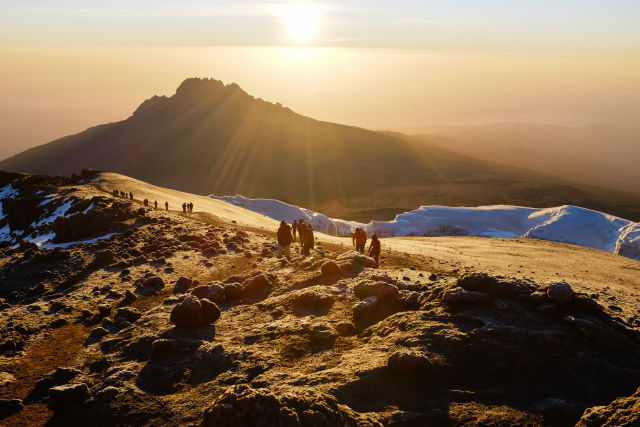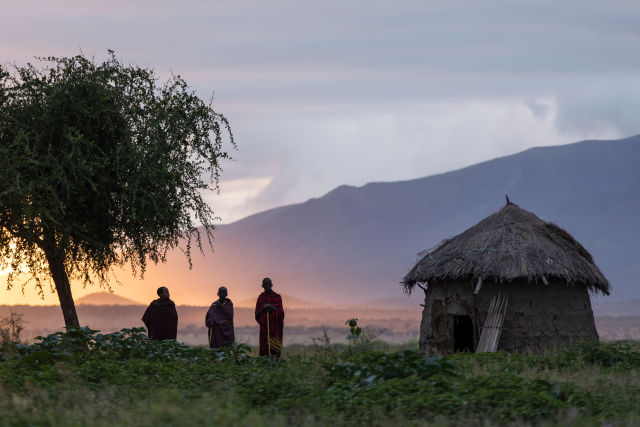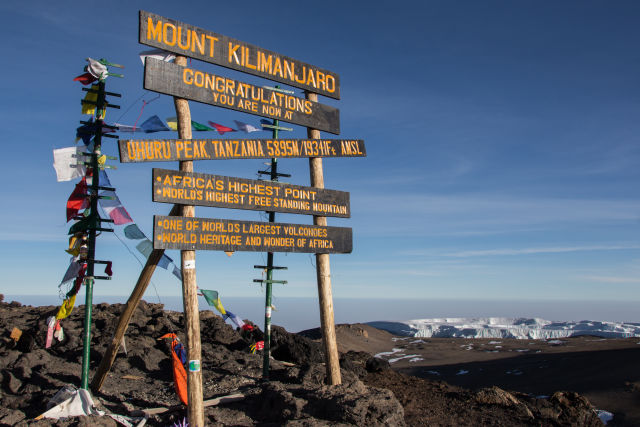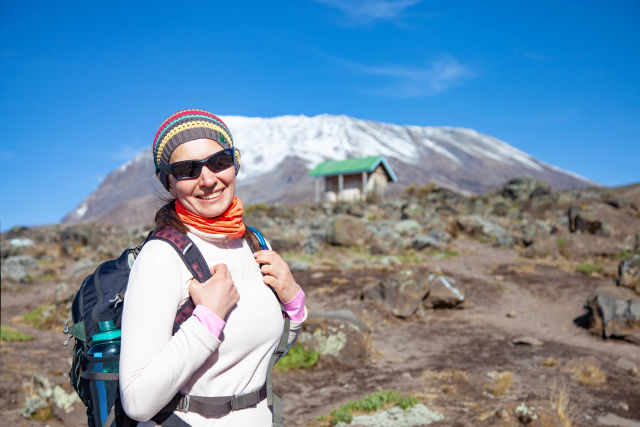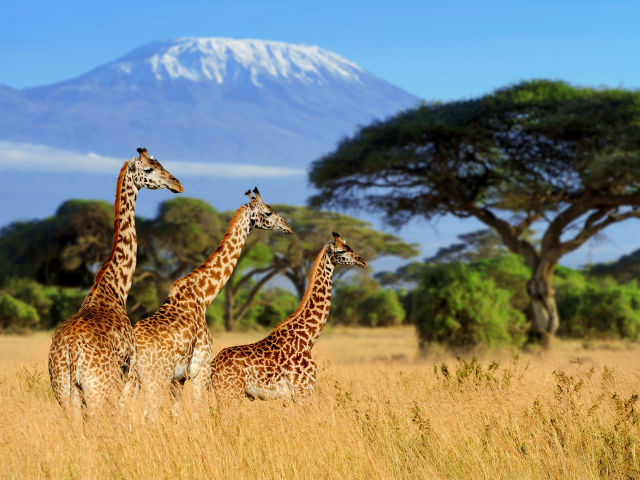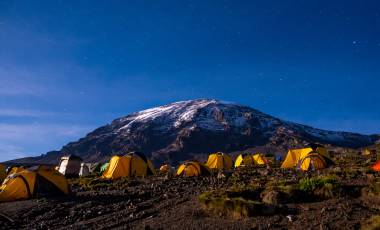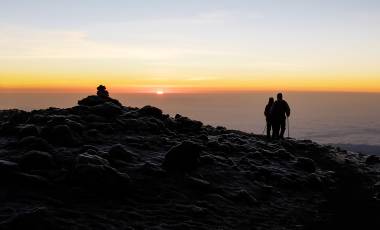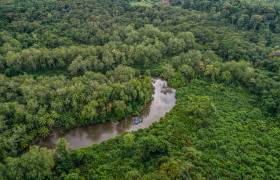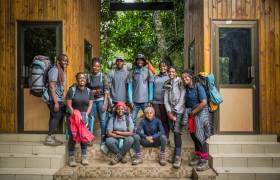An amazing adventure to the top of Africa on a much less crowded route than Lemosho.
This was my first high altitude experience, and the professionalism of the leader and the assistant guides in making sure that the group were well looked after was second to none.

Mount Kilimanjaro Tours
Top 5 Highlights of Climbing Kilimanjaro
Mount Kilimanjaro Trekking Tours
The summit of Mount Kilimanjaro in Tanzania isn’t just any mountain peak—it’s an awe-inspiring realm where the extraordinary meets the epic. Here, at the top of the world’s tallest freestanding mountain, you’ll witness a sight reserved for the boldest of adventurers: the unmistakable curvature of the Earth. But climbing Mount Kilimanjaro isn’t just a bucket list achievement, it’s also a breathtaking encounter with Africa‘s vast natural beauty.
On a Kilimanjaro trek, you’ll begin your journey by hiking through farmland, where the rhythm of rural life sets the pace for your adventure, before venturing deeper, into verdant rainforests, where towering trees canopy the path and the air is alive with the sounds of wildlife. As you ascend higher, alpine meadows unfold before you, painting a picture of serenity against the backdrop of Kilimanjaro’s snow-capped peak. Emerging above the clouds, you’ll be greeted by a vista like no other: Kilimanjaro towering above the surrounding landscape, while herds of elephants roam freely below. It’s a one-of-a-kind experience that culminates with the incredible achievement of reaching the summit.
For over 45 years, Exodus has been leading adventurers like you to this iconic African peak, offering a variety of routes and activity levels to suit every trekker’s preference. Choose from our selection of meticulously planned tours, each promising an unforgettable experience. Whether you’re a seasoned mountaineer seeking a new challenge or a novice explorer embarking on your first high-altitude trek, Exodus has the perfect expedition for you. With expert guides by your side, you’ll navigate through diverse terrains, from lush rainforests to rugged alpine slopes, all while immersing yourself in the rich culture of Tanzania.
Whether you seek personal triumph, breathtaking landscapes, or simply a break from the ordinary, our Mount Kilimanjaro trekking tours promise an experience like no other. Join us as we ascend to new heights and create memories that will last a lifetime.
Our Best Kilimanjaro Tours
Elliott Brown Kilimanjaro Climb Rongai Route
Anna Morgan Kilimanjaro Climb Rongai RouteThis was a very well organized trip with experienced leaders and very thoughtful, kind people. They made us all feel energized and positive of the hike and our abilities to be able to summit. They stuck to the schedule but were flexible when needed. The food was fabulous too!
Martin Goodman Kilimanjaro Climb – Lemosho RouteWe have just returned from this amazing trip.
What a wonderfully experience it was.
David the tour leader was absolutely fantastic.
He was strong and decisive leader and was exactly what we all needed to complete this tough challenge.
The porters were unbelievable and every bit of credit you read about them in other reviews is so very well deserved.
See for yourselves how dedicated to you they are.
It’s like a small village constantly on the move up the mountain together.The food was first class and there were a lot of choices for everybody.
To be fair we all ate really well and you certainly wont go hungry at all.The mess tent had a great vibe as you will find similar people wanting to do similar things as yourselves.
Our group of 11 had a great balance.
Me and my wife were the only couple together and all the others had come despite being in relationships.Advice
Don’t take a book or a kindle. There is very little ‘down time’ so you wont get the time you think you will get because there is always something to do.
I thought we’d have hours of waiting around in the afternoons but it never worked out that way.
Sometimes everybody would be tired and take a nap other times a card game would commence.
You’ll be amazed at how quickly the hours go.You will have a great group of people believe me.
You booked this trip for the same reasons that they did so embrace it.You will wear a lot of the same clothes, just ensure you have your summit night clothes fresh and ready to go.
Because we went in early February there were hot days and cold nights.
Your clothes wont smell and neither will you so take a little roll on deodorant and use it every morning.You will get a wishy washy (bowl of hot water) every morning and most afternoons too.
Remember it’s nothing like Glastonbury camping mainly because you will always be sober.
Believe it or not but the 15kg allowance is plenty.
No it really is.
Don’t stress about packing it’s all going to be OK…Don’t go mad with your snacks as there is unlimited chocolate and biscuits provided by Exodus.
The only small complaint was that the toilet tent was a bit shabby and the zipper needed attention.
The toilet itself was absolutely fine.
I’m sure Exodus can afford a new toilet tent.The organisation was first class and a lot of friendships developed.
It’s amazing how it’s all arranged and so well put together.I would recommend this trip 100% and Exodus as a company have got you covered.
They might cost a little more than other tours but you get what you pay for on the mountain.
Are there guides when I’m climbing Kilimanjaro?
When climbing Kilimanjaro with Exodus, you’ll be accompanied by our team of experienced Chagga guides who are well-versed in the intricacies of the mountain. They’ll provide expert instruction, support, and encouragement every step of the way, ensuring a safe and memorable trekking experience. Our guides are equipped with comprehensive first aid training and carry portable oxygen to manage altitude sickness, prioritizing your safety throughout the journey. With a ratio of one guide for every two guests, you can have peace of mind knowing that your safety and well-being are our top priorities.
What is the best month to trek Mount Kilimanjaro?
While Kilimanjaro can be trekked year-round, and each season has its own unique appeal, the best months to trek Mount Kilimanjaro are generally considered to be January, February, and September. These months typically offer the most favorable weather conditions, with clear skies, lower precipitation levels, and warmer temperatures, making for a more comfortable and enjoyable trekking experience. Additionally, these months coincide with the mountain’s dry seasons, reducing the risk of encountering rain or snow on the trek.
FAQs on Mount Kilimanjaro Tours
A Kilimanjaro trek is a challenging adventure due to its high altitude, varied terrain, and the length of the journey. Climbing to the summit, standing at 19,341 feet above sea level, requires careful acclimatization to minimize the risk of altitude sickness, but it doesn’t require any special equipment or mountaineering experience, just physical fitness and guidance from experienced tour leaders. As such, Kilimanjaro trekking is accessible to most fit and determined individuals with proper preparation.
On our tours we allow plenty of time for acclimatization, as well as soaking up the scenery. You’re in safe hands every step of the way, as all our groups are led by experienced Chagga guides and porters, who are on hand to help and offer you encouragement.
Our Kilimanjaro trips have been designed to provide you with enough time to acclimatize for your Kilimanjaro trek and reach the 19,341 ft summit. Our incredible trips are eight to ten days, including six days of hiking.
While climbing Kilimanjaro is a challenging endeavor, it is not a technical climb and requires no specialized mountaineering skills to climb, so it is feasible for beginners with proper preparation, training, and guidance. Many routes up Kilimanjaro are considered more accessible to beginners due to their gradual slopes and shorter durations. With that said, it’s essential for beginners to understand the physical demands of the trek, including long hours of hiking each day, adapting to high altitude, and potentially adverse weather conditions.
Adequate physical fitness and mental resilience are crucial for success on the mountain. Check the activity rating for your trip and use our fitness guides to ensure that you are well prepared for your climb. With the right preparation beginners can indeed conquer Kilimanjaro and experience the unparalleled sense of achievement that comes with reaching its summit.
Check your tour’s trip notes for a detailed kit list and information on what to bring on your trek. Note that your tent and other camping equipment will be provided, but you’ll need to bring a four/five-season sleeping bag and a sleeping mat. You’ll also need hiking essentials like walking poles, a duvet jacket, good-quality, well worn-in hiking boots, and layerable clothing. All luggage for the Kilimanjaro climb should be packed in a soft kit or duffel bag. The weight limit of your kit bag on the trek is 26lb. This does not include your daypack.
Exodus has one of the highest summit success rates of any operator on Kilimanjaro. Last year, our groups on the Rongai Route demonstrated that this is the best six-day route on Kilimanjaro for reaching the summit. During that time, 88 percent of our clients reached Gilman’s Point and 79 percent reached Uhuru Peak, the true summit of Kilimanjaro. We are dedicated to ensuring as many of our guests as possible reach the peak.
Expert Blog Entries
The Adventure Begins Here
Get regular inspiration straight to your inbox from Exodus’ experts.
